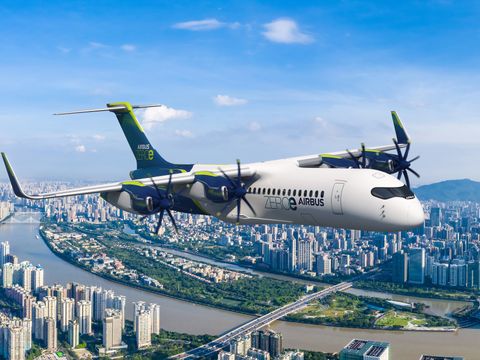Decarbonisation
Pursuing lower-carbon air travel for future generations
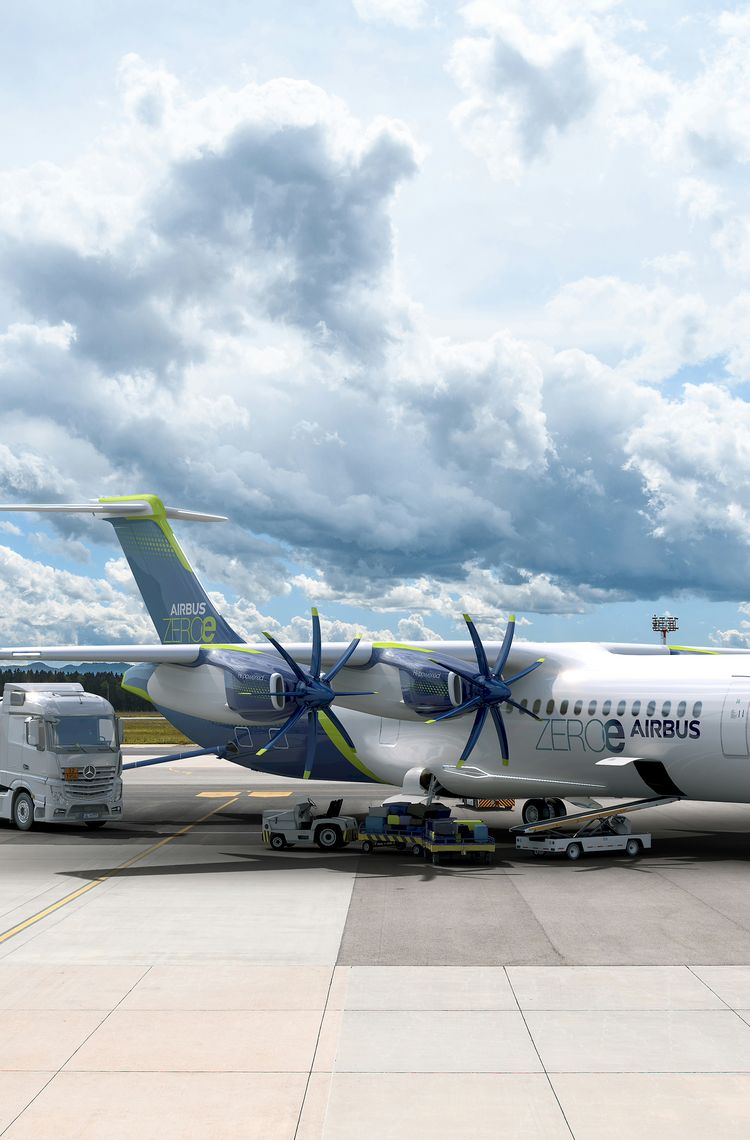
Pioneering aerospace decarbonisation
REDUCING EMISSIONS
Airbus is committed to pioneering sustainable aerospace for a safe and united world, with decarbonisation being our most significant challenge and priority.
Our strategy is not focused on a single solution, but rather a multi-faceted approach tackling emissions across the entire aviation ecosystem. We have identified five key pillars driving our efforts: accelerating fleet renewal with the latest generation aircraft, developing more efficient future aircraft concepts, championing the widespread adoption of sustainable aviation fuels, implementing operational improvements for more efficient flight, and exploring market-based measures like carbon capture and removal.
By focusing on these interconnected areas, we aim to significantly reduce the environmental impact of air travel and contribute to the aviation industry’s long-term goal of reaching net-zero carbon emissions by 2050, as set by ATAG, IATA and ICAO.
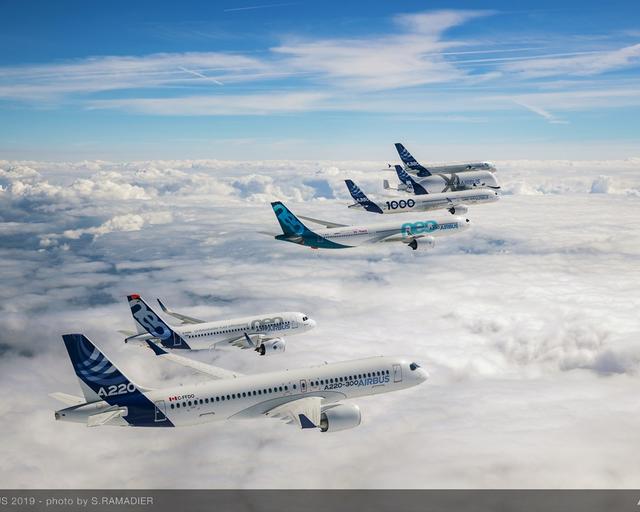
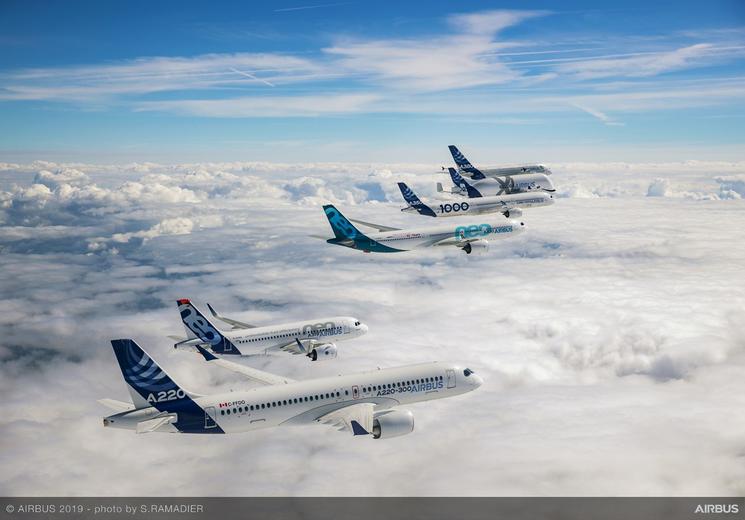
Latest generation aircraft
REDUCING FUEL BURN
Our latest generation of aircraft deliver a fuel savings of 20% to 30% compared to their predecessors. Given that around 70% of the in-service fleet is older generation, modernising with new, fuel-efficient aircraft is crucial for immediate impact. Latest generation aircraft feature advanced aerodynamics, lighter materials and more fuel-efficient engines, and are capable of operating on a blend of up to 50% sustainable aviation fuel (SAF).
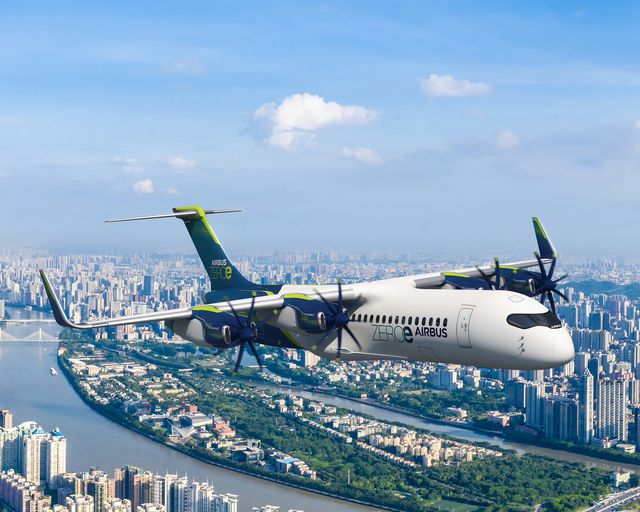

Future generation aircraft
PIONEERING TECHNOLOGY
We're developing the groundbreaking technologies essential for two future clean-sheet aircraft programmes. The first is the next-generation single aisle, which will succeed the A320 Family. With this aircraft, we aim to further reduce fuel burn by 20%-30% through innovative propulsion, wing, hybridisation, materials and systems technologies. We are also pioneering ZEROe, a fully electric aircraft powered by hydrogen fuel cell technology, which converts hydrogen and oxygen into electricity with no CO2 or NOx emissions.
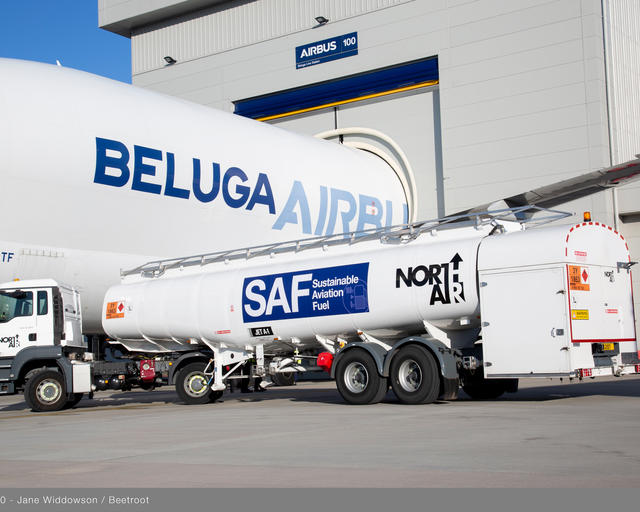
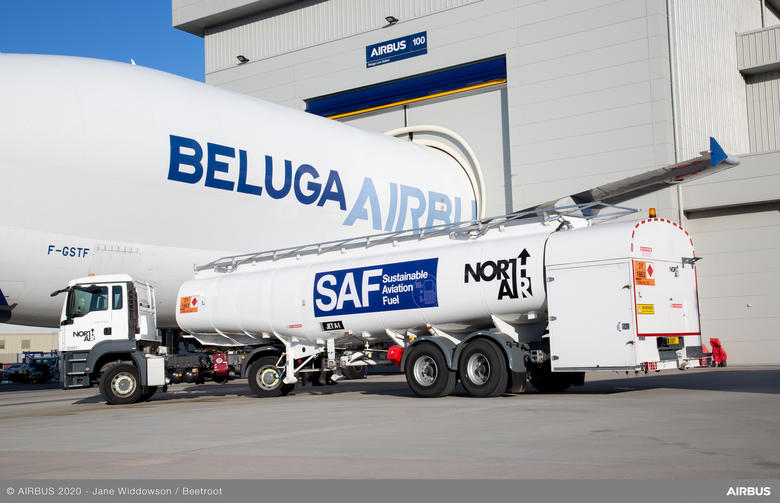
Sustainable aviation fuels
SUPPORTING THE ECOSYSTEM
Sustainable aviation fuels (SAF) can reduce lifecycle emissions by up to 80% compared to conventional jet fuel. Made from renewable feedstocks, SAF must meet strict sustainability criteria. All Airbus aircraft are currently certified to fly with up to a 50% SAF blend, with a target of 100% SAF capability by 2030 for all Airbus aircraft and helicopters. Airbus is increasing SAF use in its own operations and actively scaling the SAF ecosystem globally through different initiatives.
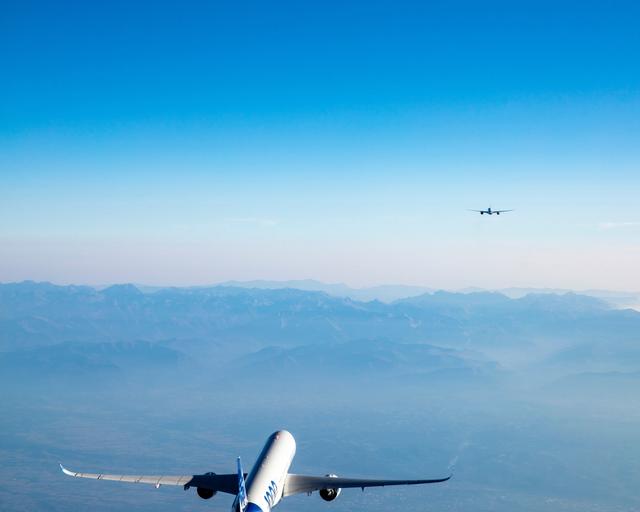
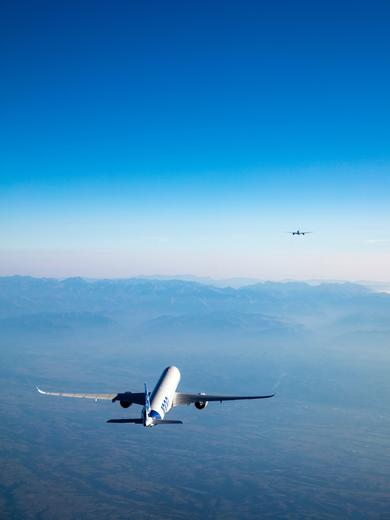
Operational improvements
OPTIMISING OPERATIONS
We support the European ATM Master Plan’s performance ambition of reducing gate-to-gate, per-flight CO2 emissions by 5%-10% by 2035 compared to a 2012 baseline. To this end, Airbus is actively contributing or leading several studies into how optimising air traffic management (ATM) and ground operations can reduce emissions from aviation. These include wake energy retrieval, air traffic management and non-CO2 emissions projects such as fello’fly, GEESE, HERON, CICONIA and Blue Condor.
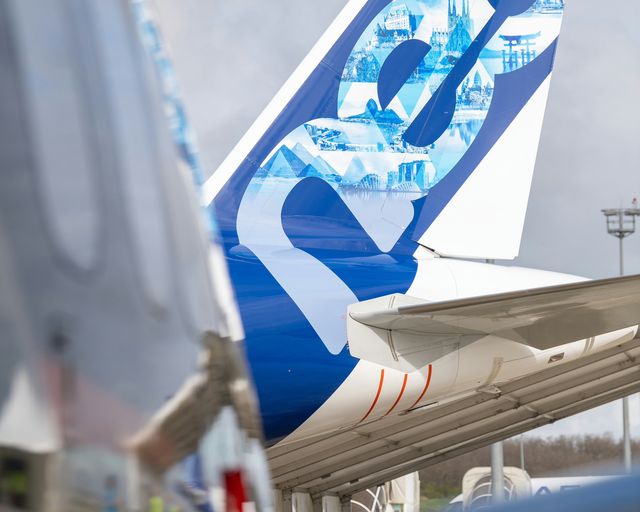

Market-based measures
CLOSING THE GAP
Airbus believes that carbon capture and storage technology can play a key role in addressing the aviation sector’s residual emissions. To this end, Airbus has secured an agreement with 1PointFive for the offtake purchase of 400,000 tonnes of carbon removal credits. We have also launched the Airbus Carbon Capture Offer, a solution designed to bring affordable and scalable carbon dioxide removal credits to the aviation industry to help airlines address unabated emissions.
Impactful partnerships to tackle climate change
To achieve our own targets and contribute to the aviation industry’s shared goals, we understand that we cannot move forward alone. This is why we have aligned our climate action plan with a variety of industry-wide environmental principles and targets, driven by organisations in which Airbus plays a leading role:
- The Air Transport Action Group (ATAG) is a global independent body that brings together the entire aviation industry to promote sustainable growth that benefits society.
- The Clean Aviation Joint Undertaking aims to develop disruptive new aircraft technologies to support the European Green Deal, and the IATA, ATAG and ICAO shared ambition of net-zero carbon emissions by 2050. The Clean Aviation Joint Undertaking runs from 2021-2031 and boasts a budget of €4.1 billion. Airbus is a founding member.
- Hydrogen Council: This global initiative brings together energy, transport and industrial companies to deliver a united vision and long-term ambition for hydrogen as part of the energy transition. We are currently a member and benefit from the cross-industry experience on hydrogen.
- The International Aerospace Environmental Group (IAEG) promotes global standards for greenhouse gas emissions reporting, substances management and substitution technologies. Airbus is a founding member.
- The SESAR 3 Joint Undertaking is a European private-public sector partnership that aims to harness research and innovation to accelerate the delivery of the Digital European Sky. Airbus is a founding member.
The latest in decarbonisation
In the spotlight
-

How Book and Claim enables SAF use for HEMS operations
Web Story
Helicopters
Airbus Helicopters and SAF Hélicoptères are using the Book and Claim system to support the accessibility of SAF for EMS missions in Catalonia. -
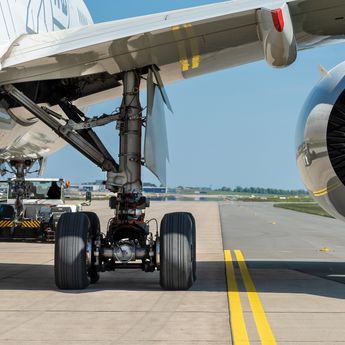
Taxibots spool up as project HERON winds down
Web Story
Innovation
-
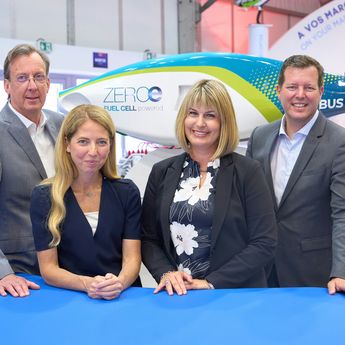
Airbus and MTU Aero Engines advance on hydrogen fuel cell technology for aviation
Press Release
Innovation
-
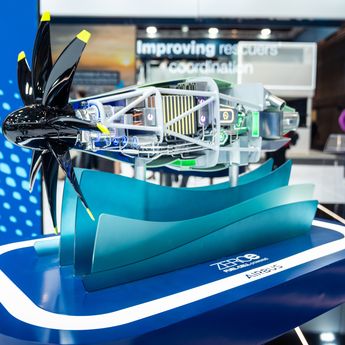
Airbus at Paris Air Lab 2025: Discover Tomorrow, Today
Web Story
Innovation
-
Airbus signs MoU to collaborate on pure Japan-domestic wood-based SAF
Press Release
Sustainability


